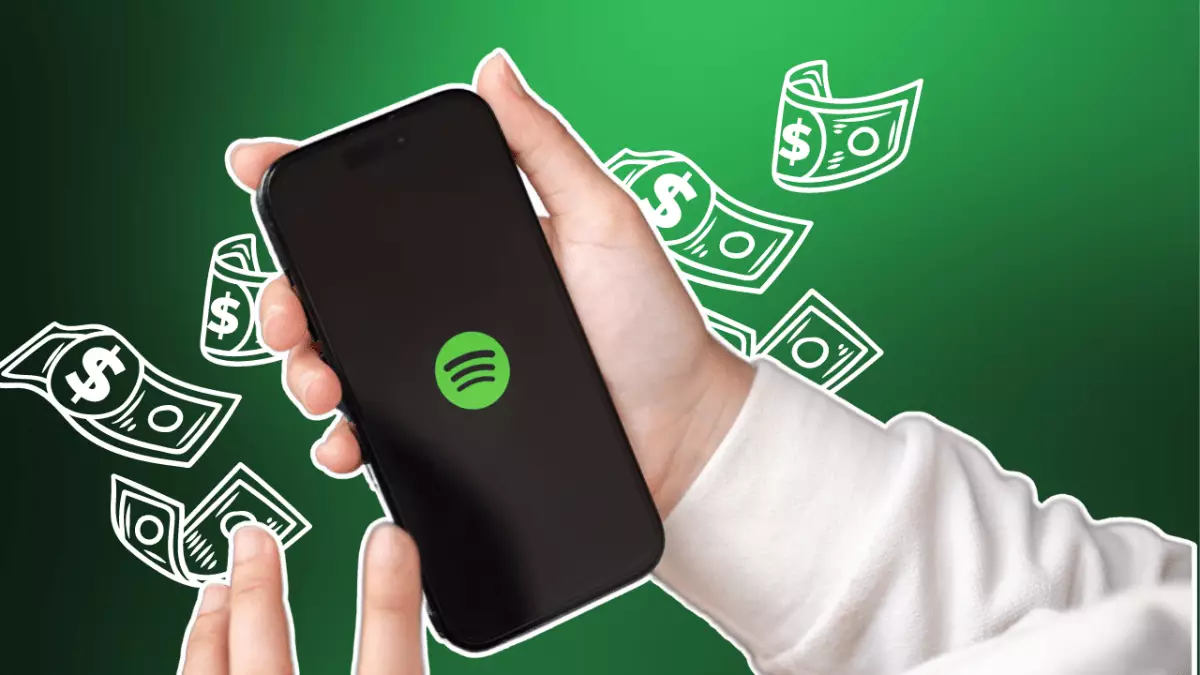In a bold move, U.S. Senators Marsha Blackburn and Ben Ray Luján have called upon the Federal Trade Commission (FTC) to scrutinize Spotify’s recent decision to merge its music streaming service with audiobooks. This bundling tactic, which raises subscription costs without explicit consumer consent, has raised eyebrows within the industry and among policy-makers. The senators argue that such practices not only undermine consumer rights but also assert that it endangers the financial well-being of songwriters and music publishers by slashing the royalties they receive.
This is not merely a reactive complaint; it highlights a growing concern about the power wielded by streaming giants in the music industry. With their ability to dictate prices and terms, companies like Spotify have a towering influence over financial flows within the creative sector. The argument brought forth by Blackburn and Luján paints a grim picture: that Spotify’s bundling appears designed to decrease its royalty obligations to less-than-acceptable levels, jeopardizing the livelihoods of many creators who depend on these revenues.
The Regulatory Implications of Bundled Services
The mechanics behind Spotify’s bundling scheme involve regulatory loopholes that currently allow lower royalty rates when digital music services include additional features. Critics contend that this presents an inherent conflict of interest, as consumers may be unaware that by accepting a bundled subscription, they are indirectly contributing to a funding model that harms artists. The idea that digital streaming platforms can consolidate various services under one price tag, while drastically undercompensating the creators of that very content, sparks critical debate within the industry.
A grave implication of this bundling practice is the potential normalization of reduced royalties. If Spotify’s approach becomes widespread—and unchallenged—other platforms may follow suit, leading to a systemic devaluation of artist compensation across the streaming landscape. As highlighted by the National Music Publishers’ Association, the financial repercussions are staggering; they estimate that publishers may lose out on an approximate $230 million in the first year alone as a result of Spotify’s new pricing model.
A Broader Impact on the Creative Ecosystem
This controversy surrounding Spotify is emblematic of a more extensive issue within the digital age: the tension between technological innovation and protecting the rights of creators. As platforms evolve to encapsulate more content types—like audiobooks—in an effort to appear comprehensive and attractive to consumers, the underlying business models often prioritize corporate profit over the sustainability of creative endeavors.
Additionally, Spotify’s adjustment to require users to manually opt-out of this new plan raises ethical questions about consent. The onus is placed on consumers, essentially asking them to take an extra step to protect their own interests. This not only dilutes the transparency expected from a brand of Spotify’s caliber but also suggests a predatory approach to customer engagement and retention.
As discussions proceed toward regulatory inquiries and possible investigations, the real consequences of Spotify’s policies may resonate far beyond the immediate drama, threatening the very fabric of how creators are compensated in the era of streaming. The outcome of this is not merely about one platform; it stands to shape the future of the entire creative landscape. The stakes are high, and it seems clear that the conversation surrounding fair compensation and consumer transparency will only grow more urgent in the coming months.

